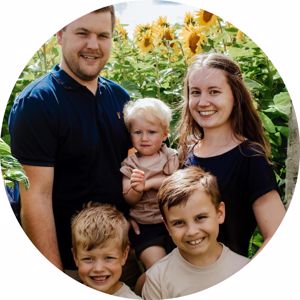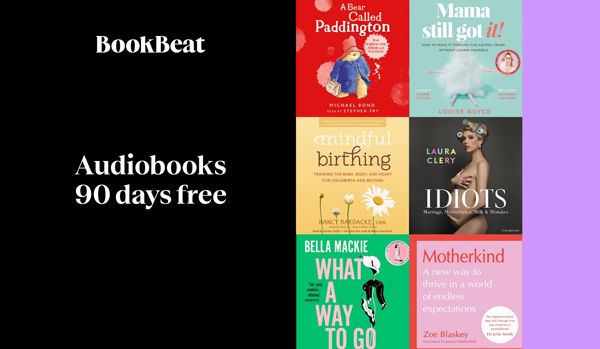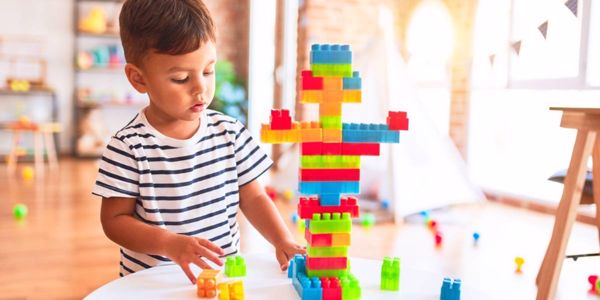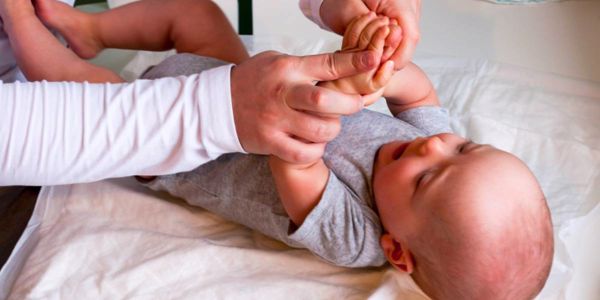It's no secret that babies and toddlers love music. Whether it be creating their own music with the banging of toys or clapping of hands. I know sometimes it can be a little bit too loud, but music is actually an important part of early childhood development.
What Kind of Music Is Good for Babies and Toddlers?
Research has shown that classical music has a stimulating effect on both the body and mind, which in turn can lead to improved emotional and physical health, and this music has been shown to positively impact the development of both babies and toddlers.
Alongside this, in terms of overall health and well-being music plays a big role. Lively music with a good rhythm helps the development of newborn babies, toddlers and even preschool children by encouraging movement. This movement is how children learn to perfect their motor skills, alongside boosting their overall mood.
When Should You Introduce Musical Play?
Answer - ASAP! You can begin introducing music to your little one as soon as you bring them home! Although your newborn can’t bang toys, clap their hands or dance around for hours on end - rocking your baby to some soft background music is never a bad idea! And what's more, the calming benefits of music can be enjoyed by both of you.
An easy and enjoyable way to interact with your baby is to introduce them to music and sounds during their first year. From birth, instinctively we use music and sounds to calm our little ones. Playing together, with music encourages your baby’s brain development and boosts their social and language skills. Along with boosting your and your baby’s mood.
For babies and toddlers, music provides cognitive benefits that support your little one in early development. Studies have found that musical experiences in childhood can help accelerate brain development, in particular their language and reading skills, what's more, learning to play a musical instrument can improve their mathematical learning.
Music also helps their body and mind work in unison. Dancing to music helps children develop motor skills and a sense of rhythm and self-expression alongside helping them learn both the meanings and the sounds of words.
Introducing Musical Play
Music and Babies (0-12 months):
Babies are able to understand the melody of songs for a long while before they are able to understand words. Soothing background music is a good calming technique when it comes to calming your little one during nap times and bedtime. Whether you’re rocking your little one to sleep or find yourself swaying to the rhythm of the music to slow things down. Music is both soothing and allows for bonding and gives the opportunity to interact with your little one more.
Singing simple songs like nursery rhymes, or even making up your own songs by singing a couple of lines about the task you are doing - things like bath time, teeth cleaning time, snuggle time.
Never underestimate the power of a musical mobile! The music from these mobiles helps to stimulate both your baby’s vision and hearing at the same time. (Tip- ensure the mobile is hung far enough away that your little one can’t reach it and remove it by the time your baby is 5 months, or showing signs of being able to grab the mobile).
As your baby gets older, Introducing musical instruments like maracas, a xylophone, a musical triangle etc can be a fun activity for you both. As your baby gets older, your little one will become responsive and may even want to join in with you.
Music and Toddlers (12-24 months):
It’s no surprise that toddlers love to get up and dance or move to music. Toddlers love music that contains repetition. Repetition is great as it encourages language and helps strengthen their memory skills. Let your little one reproduce the rhythms by banging or tapping objects and by clapping their hands.
My toddler absolutely loves clapping his hands together and banging his blocks against each other (he just loves making as much noise as possible!) At this age try to encourage your little one to explore sounds by introducing words like louder, quieter, slow, fast, your turn, stop, go. The benefits of music are never-ending - start them young, even if it’s just 15 minutes spent dancing around to music in your kitchen, with your toddler.






